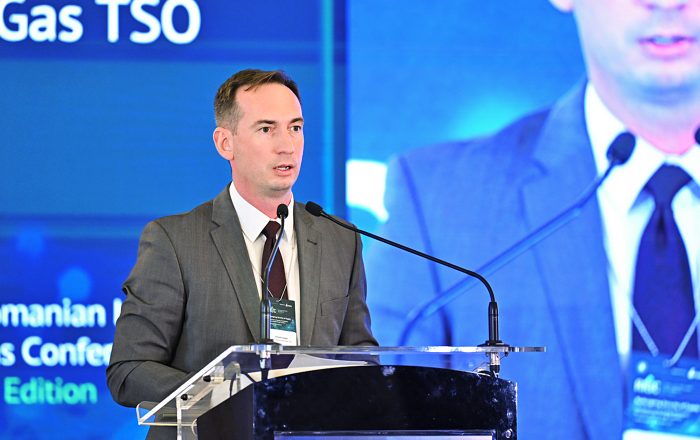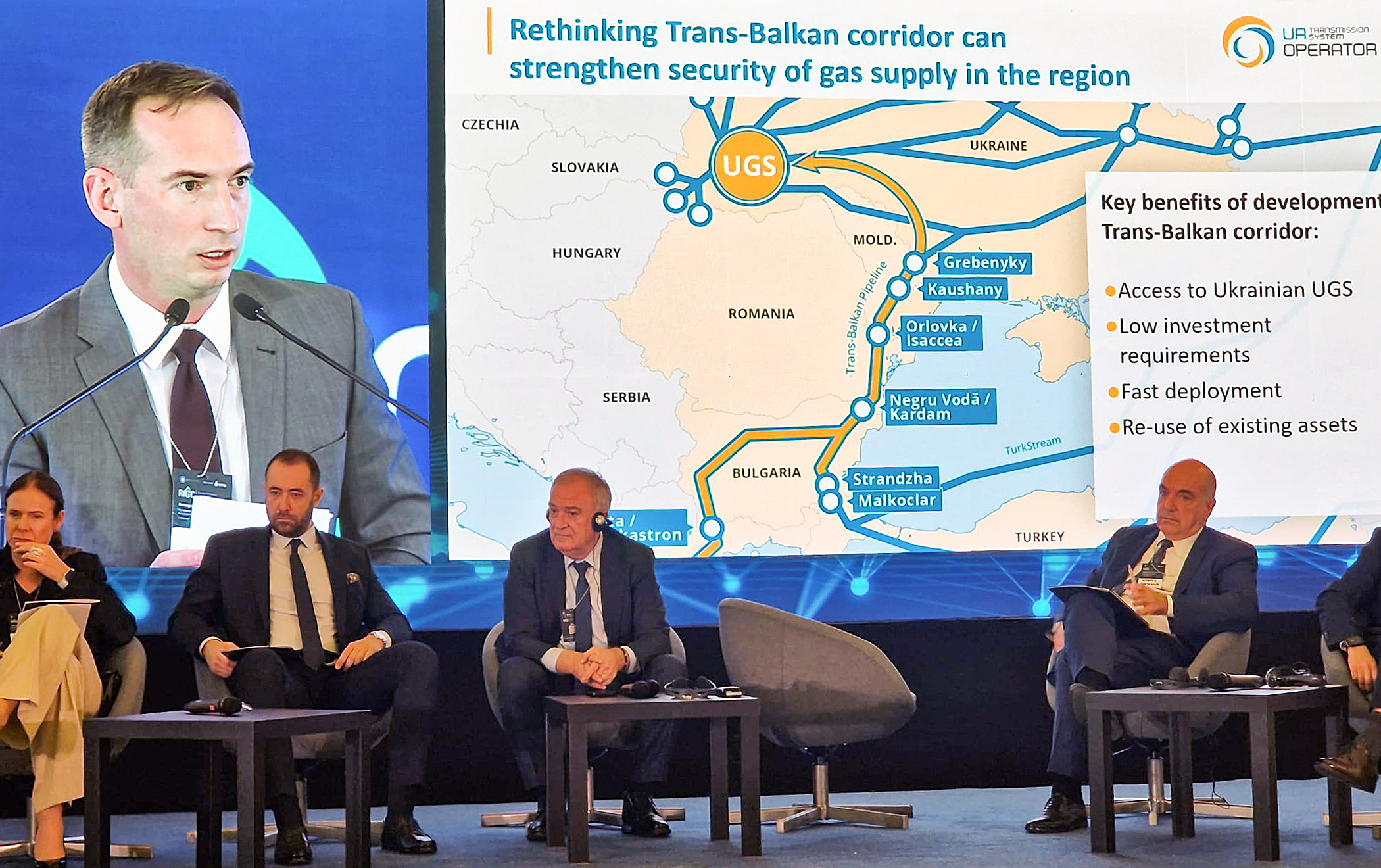On November 7, Dmytro Lyppa, General Director of the GTS Operator of Ukraine, participated in the 6th Romanian International Gas Conference, organised annually by the Oil and Gas Employers’ Federation of Romania with the support of the country’s economy ministry.
The GTSOU’s General Director took part in the discussion panel titled “The potential of natural gas production, its role in energy transition and future challenges.” Dmytro Lyppa presented the Operator’s vision with regard to the key role that Ukraine’s gas transmission system can play in future against the backdrop of hydrogen and biomethane energy development, as well as transportation of green resources to EU countries.
“Together with the Slovakian, Czech and German operators we are working on the creation of the Central European Hydrogen Corridor, which will allow for the transportation of up to 5 million tons of hydrogen to the EU a year. Also, before the full-scale invasion, Ukraine had over 60 biogas producing plants, and 2023 saw the signature of the first contract to connect one of the biomethane producing plants to the network,” Dmytro Lyppa said.
During his speech, Mr. Lyppa paid special attention to the rethinking of the role of the Trans-Balkan Gas Corridor. “We are convinced that this corridor can connect Greek and Turkish LNG terminals, underground gas storage facilities in western Ukraine and consumers in Central and Eastern Europe. We believe that in combination with the significant increase in Romania’s natural gas production and the development of LNG terminals, this means that this project is worth a great deal of attention,” the GTSOU’s General Director concluded.
This year, the Romanian International Gas Conference focused on security of supplies and the role of innovations in ensuring a sustainable energy transition. During the conference, participants discussed energy transition strategies and policies, the roles played by natural gas, hydrogen and new technologies in it, as well as current legislative challenges that the energy sector faces.

